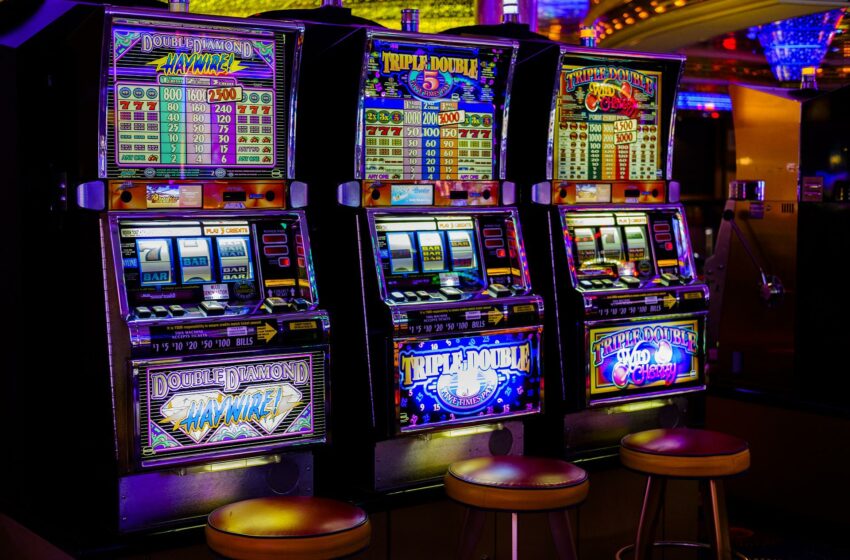
In the world of gambling, in which chance and strategy converge, a unique tapestry of beliefs emerges—one that braids luck, fate, and the enigmatic nature of casino games. Casinos, bustling with excitement and anticipation, are not just places for placing bets; they are also arenas in which superstitions thrive. From the novice player to the seasoned gambler, these mysterious practices often shape how individuals approach the games they play, holding the belief that their actions can influence the outcome in ways that go beyond mere probability.
As players gather around roulette wheels, blackjack tables, and slot machines, the atmosphere is thick with stories of lucky charms, rituals, and codified behavior that defy logic yet provide a sense of comfort. Whether it’s wearing a specific outfit, following a particular sequence of bets, or even avoiding certain numbers, the attachment to various superstitions reflects a deep-rooted desire to master the uncontrollable. This article delves into the captivating world of casino game superstitions, examining the beliefs that simultaneously entertain and mystify those who dare to play.
Historical Beginnings of Superstitions
Gambling activities have long been connected with an array of superstitions that trace to primitive civilizations. J88 The origins of these notions can be connected to humanity’s fundamental desire to manage the unpredictable outcomes connected with chance and chance. In ancient civilizations, activities of chance were often linked to spiritual practices. Gamblers would call upon favor or ask for favor from gods, believing that their actions could affect the odds in their benefit. This foundation laid the groundwork for the multitude of superstitions that spread as betting evolved over ages.
During the medieval age, betting became a common pastime across the continent, and with it, a colorful tapestry of superstitions developed. Players adopted different rituals and charms, believing they could affect the consequences of games. The significance of numbers, in particular, began to manifest in superstitions pertaining to card games and dice. The number seven was often considered lucky, while various numbers carried negative connotations. These notions mirrored the social contexts of the time, adapting as they transferred through generations and adapted to emerging gaming environments.
As casinos developed in the 17th century, particularly in Italy and France, the atmosphere surrounding betting became steeped in enigma. The growing openness of gambling activities allowed for the dissemination and diversification of superstitions among players. Concepts like lucky charms, designated seating positions, and rituals gained importance, creating a special culture within betting houses. As these practices continued to thrive, they became fundamental to the character of gambling games, illustrating how historical developments and culture shape the convictions that influence how players engage with chance.
Common Casino Myths
Superstitions surrounding gambling activities are abundant and varied, reflecting the dreams and anxieties of gamblers as they participate in chance-based games. One of the most prevalent views is that specific numbers bring fortune or misfortune. For example, the digit seven is often seen as a favorable number, frequently embraced by players looking for a positive outcome. Conversely, the number thirteen is routinely considered cursed, leading many players to avoid it during their gaming sessions.
Another common belief relates to rituals that gamblers believe can influence their odds. Whether blowing gently on the dice before a roll, using a specific gesture to place a wager, or even putting on specific items of clothing, many individuals feel that these actions can tilt fate in their benefit. These rituals offer a feeling of control in an otherwise random environment, strengthening the idea that luck can be created through personal beliefs and customs.
Finally, the environment and vibe of the gambling house itself adds to myths. Many players suggest that the presence of certain icons, such as four-leaved clovers or lucky tokens, can enhance their chances of winning. Additionally, gamblers might adhere to the notion that victory streaks can be interrupted by mundane occurrences, such as someone passing by or a accident at the table. The collective environment in a casino can amplify these beliefs, creating a shared culture of superstitions that goes beyond individual encounters.
Impact of Superstitions on Players
Beliefs play a crucial role in the mindset of casino players, often influencing their behavior and choices. Many gamblers believe that fortune can be manipulated through various rituals, such as donning a talisman, selecting specific colors, or avoiding certain numbers. This reliance on superstitions can create a sense of authority in an environment that is inherently unpredictable. Players often feel more confident and engaged when they think that their actions could sway the outcome of a game in their favor.
The impact of these superstitions extends past individual players, affecting the general atmosphere within the casino. For example, a player who believes in the luck of a certain slot machine might attract a crowd, as others are fascinated by their apparent luck. This collective belief can amplify excitement and create a dynamic environment, leading to an interesting experience even for those who may not necessarily be believers themselves. The buzz around specific games can lead to increased participation and extended playing sessions, supporting the casino’s vibrant social scene.
In some instances, superstitions can lead to harmful effects for players. Relying too much on rituals can result in poor gambling decisions, as some may overlook basic strategies in favor of unfounded beliefs. Additionally, the pressure to perform rituals may heighten anxiety and tension, detracting from the enjoyment of the experience. Ultimately, while superstitions can enhance the thrill of playing casino games, they can also lead to unwise choices that overshadow the enjoyment and amusement intended in the casino experience.
